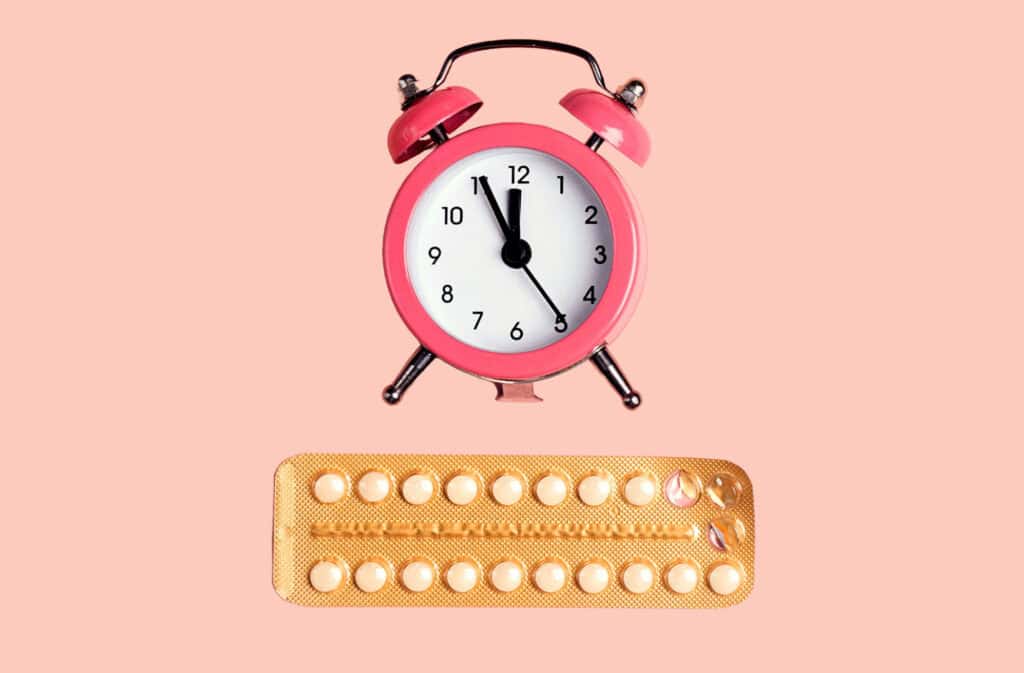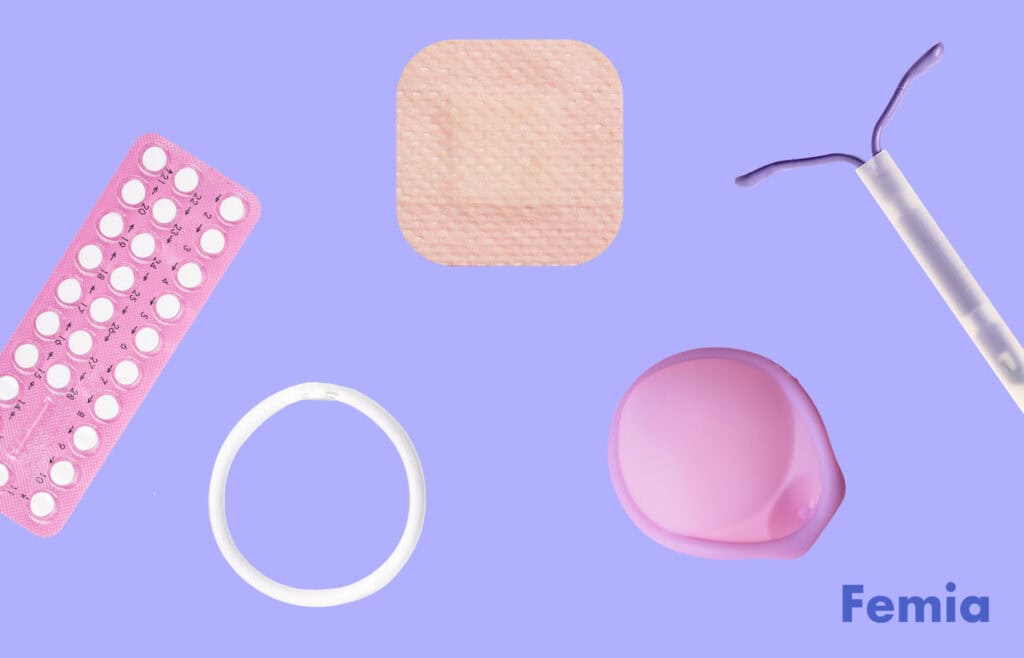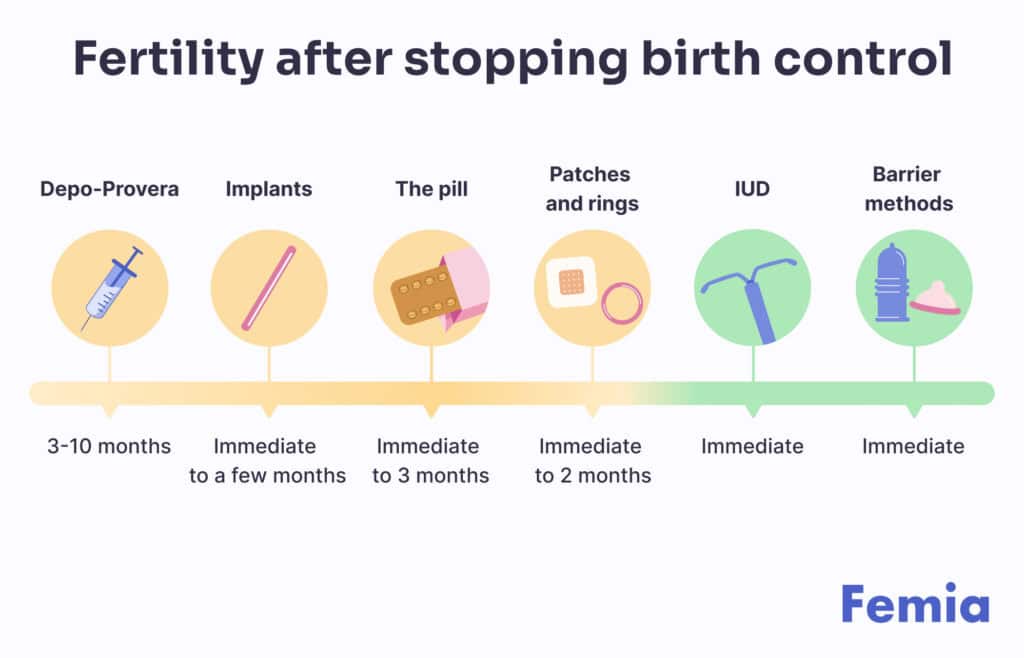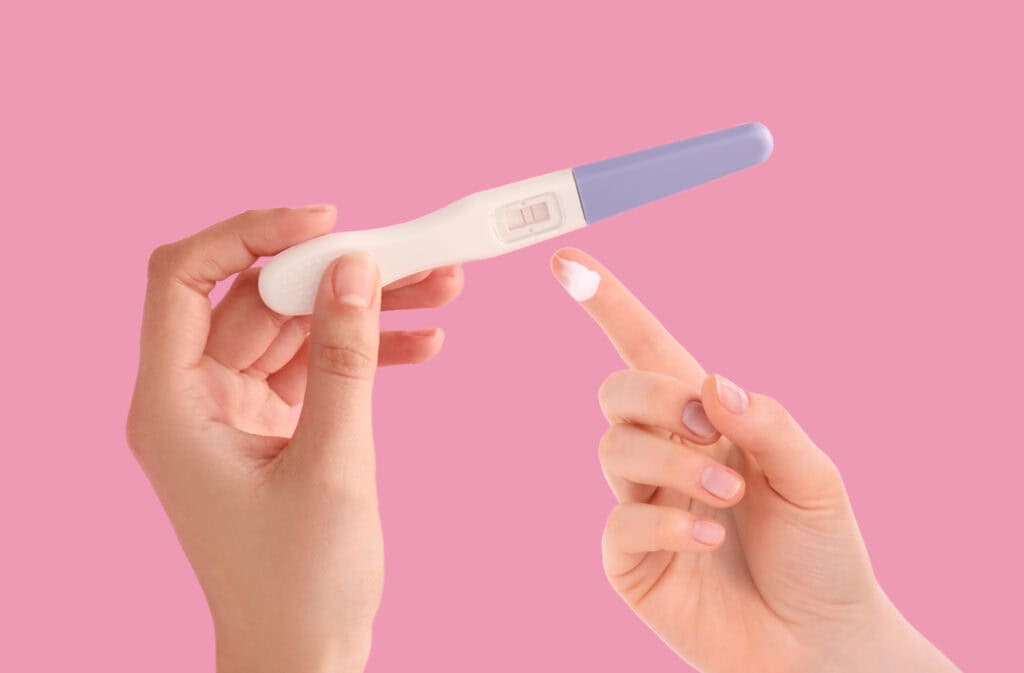Femia > Health Library > Getting Pregnant > Planning pregnancy > How long should you be off birth control before trying for a baby
How long should you be off birth control before trying for a baby

- Updated Feb 11, 2025
- Published
CRAFTED BY HUMAN
Crafted by human At Femia, we provide accurate and up-to-date information at every stage of your journey, from trying to conceive, pregnancy and postnatal support. All content is created by a real person based on in-depth research and own professional experience. Femia ensures that you will receive expert advice, strict accuracy and a personalized approach from our authors/medical experts. Learn more about our editorial policy.
FACT CHECKED
Fact checked At Femia Health, we maintain the highest standards of editorial excellence in delivering content focused on helping you conceive, guiding you through pregnancy, and supporting you postpartum. Explore our content review principles to learn how we ensure the accuracy and quality of our health and lifestyle tips for every stage of your journey.
You can start trying to conceive immediately after stopping birth control, but it might take a few months for your menstrual cycle to normalize. For some women, fertility can return immediately. However, for others it may take a few months for ovulation to restart. If you have been taking the Depo-Provera injection, it can take up to a year.
One of the first steps many women take on this path is to stop using birth control. But, can you just stop birth control suddenly whenever you’re ready to get pregnant? And, how long should you wait before trying to conceive?
There are several different types of birth control, and they can all affect your body differently. In this article, we will walk you through how and when to stop using them as well as what you can expect after you stop.
Femia helped 35,000 couples to optimize their fertility
How birth control affects fertility
Birth control methods, such as the pill, IUD, or injection, work by regulating hormones to prevent ovulation, which temporarily halts the fertility cycle. However, once you stop using birth control, most women can expect their fertility to return to normal relatively quickly, especially with methods like the pill. While some women may experience a short delay in ovulation, it is entirely possible to get pregnant after birth control. The time it takes to conceive after discontinuing birth control varies, but in most cases, the body regains its natural fertility within a few months.
When to stop birth control before trying to conceive
How long should you be off birth control before trying for a baby?
The time it takes for fertility to return after stopping birth control varies depending on the method used. For most women, fertility can return anywhere from one week to three months after discontinuing birth control.
Oral contraceptives (the pill and minipill): Fertility typically returns immediately after stopping the pill, though some doctors suggest waiting for one natural menstrual cycle to help date the pregnancy.
Intrauterine device (IUD): Fertility usually returns immediately after removal of the IUD, whether hormonal or non-hormonal.
Depo-Provera (the shot): It can take longer for fertility to return, with some women taking up to 10 months to begin ovulating again.
Implants (e.g., Nexplanon): Fertility typically returns quickly, and you can start trying to conceive right away after removal.
Hormonal patches and rings: Like oral contraceptives, fertility can return almost immediately for some women. It’s often recommended to wait for one natural cycle.
Barrier methods (condoms, diaphragms): These do not affect fertility, so you can start trying to conceive immediately after stopping use.
For the best results, consult with your healthcare provider to discuss your specific situation and any health considerations.
👉Find out more: What are the chances of getting pregnant after stopping birth control?
How to get off birth control to get pregnant
If you are planning to conceive but are currently using a form of birth control that affects your fertility, then you might be wondering the right way to stop. Here’s how to do it safely and effectively:
1. Consult with your healthcare provider
The first and most important step is to consult with your healthcare provider. They can offer personalized advice based on your health history, the type of birth control you’re using, and your future family planning goals. Your healthcare provider can also address any concerns you might have and provide guidance on what to expect during the transition period.
2. Transition gradually if needed
Depending on the type of birth control you’re using, the approach to stopping can vary:
The pill, the patch or the ring. You can stop taking these hormonal birth controls at any time. However, some doctors recommend finishing your current pack or cycle, so that you know when you can expect your period to start — you will get bleeding when you stop your pill/patch/ring. Once you stop, you might experience withdrawal bleeding as well as irregular periods for a few months.
IUD. For an IUD, you’ll need to schedule an appointment with your healthcare provider for removal. Fertility usually returns quickly after removal, but it’s essential to do this under medical supervision to avoid complications.
Depo-Provera (the shot). If you’re using Depo-Provera, then to come off it, you just won’t get the next shot. Each shot lasts for about three months, but for some people, it can take longer than three months for their periods to come back.
Implants (e.g., Nexplanon). Like IUDs, implants need to be removed by a healthcare provider. Fertility typically returns quickly after removal.

3. Monitor your cycle
After stopping birth control, it’s a good idea to monitor your menstrual cycle. This will help you understand your body’s natural rhythm and identify when you’re ovulating. Here’s how to do it:
- Track your cycle. Use a fertility-tracking app like Femia to note the start and end dates of your periods as well as any signs of ovulation. This will help you determine the length and regularity of your cycle.
- Observe ovulation signs. Pay attention to signs of ovulation, such as changes in cervical mucus or a slight increase in basal body temperature. Many apps can help you track these signs.
- Consider using ovulation predictor kits. Ovulation kits are used at home to check for certain hormones in your pee that will tell you when you’re most fertile. Using an ovulation kit can help you identify when you’re about to ovulate and give you the best odds of conceiving.
How long does it take for birth control to get out of your system?
When you decide to stop using birth control, you might wonder how long it will take for your body to return to its natural state. The timeframe can vary depending on whether you were using hormonal or non-hormonal methods.

Hormonal birth control
| Oral contraceptives (the pill) | According to Planned Parenthood, the hormones from the contraceptive pill will leave your body within a few days. However, it can take anywhere from a few weeks to several months for your body to return to its natural state and for your periods to become regular. |
| Hormonal patches and rings | These work very similarly to oral contraceptives, and the hormones will leave your body very shortly after you stop using them. However, it can still take a few months for your regular menstrual cycle to return. Despite this, it’s important to note that it is possible to get pregnant any time after you stop using the ring or the patch, even if your periods haven’t returned. |
| Hormonal injections (Depo-Provera) | The hormones in the shot work to prevent your body from ovulating. This type of birth control typically takes the longest to leave your system and for your fertility to return. The hormones in the shot stay in your body for 13–15 weeks from the time you are injected. After that, it is possible to start ovulating again; however, many women find that their periods doesn’t return until 9–10 months after their last injection. |
| Implants (e.g., Nexplanon) | Clinical trials for the implant “Implanon” found that the hormones from the implant could no longer be detected in the blood a week after it had been removed. Pregnancy is possible very soon after removal of the implant. |
| Non-hormonal birth control methods | Non-hormonal birth control methods, such as copper IUDs and barrier methods, do not contain hormones and do not interfere with your natural fertility. This means that when you stop using them, your body will return to its natural state immediately, and pregnancy will be possible from any point. |
Is it safe to get pregnant right after you use birth control?
Yes, it is generally safe to get pregnant right after stopping birth control. For most methods, such as the pill, IUD, or implant, fertility can return quickly once the birth control is discontinued. However, some methods, like Depo-Provera, may take longer for fertility to return, so it’s important to consult your healthcare provider for personalized advice.
Does it matter whether you get your period?
Having a natural menstrual cycle, which includes a period, can indicate that your body has started ovulating. However, ovulation can happen before you get a period, so it is possible to get pregnant even if your periods have not yet returned.
After stopping hormonal birth control, it can be helpful to wait until you’ve had one natural period before trying to conceive. This can make it easier to predict ovulation and understand your cycle. It also allows for more accurate dating of the pregnancy once you conceive, as you know the date of your last menstrual period.
👉 Find out more: Can you get pregnant without a period?
How can you tell if you’re ovulating?
Monitoring ovulation can increase your chances of conceiving. Here are some methods to determine if you’re ovulating:
- Menstrual cycle tracking. Regular cycles (21–35 days) often indicate regular ovulation. Using an app like Femia to track your cycle can help you to determine when you are in your fertile window.
- Basal body temperature (BBT). BBT increases slightly right after ovulation occurs. Tracking it daily can help you determine if you’ve ovulated.
- Cervical mucus. Around ovulation, cervical mucus becomes clear, stretchy, and similar to egg whites. Tracking the changes in texture and volume of your cervical mucus can help you recognise when you’re in your fertile window.
- Ovulation predictor kits (OPKs). These kits detect the surge in luteinizing hormone (LH) that occurs just before ovulation.
- Physical symptoms. Some women experience mild pain or discomfort on one side of the abdomen when an egg is released from an ovary, known as mittelschmerz or ovulation pain.
👉 Find out more: Understanding ovulation symptoms: Mood changes explained
Factors affecting fertility
Several factors can influence how quickly you conceive after stopping birth control:
- Age. Fertility naturally decreases with age. According to ACOG, your fertility begins to decline after the age of 30, and this decline speeds up once you reach your mid 30s.
- Health and lifestyle. Certain lifestyle factors like weight, smoking, alcohol consumption, and exercise can affect your fertility. Speak to your healthcare provider for a personalized approach to help you maximize your fertility.
- Medical conditions. Conditions such as polycystic ovary syndrome (PCOS), endometriosis, and thyroid disorders can affect ovulation and fertility.
- Frequency of intercourse. A 2023 cochrane review found that couples who timed sex around the fertile window had a higher chance of getting pregnant.
The time it takes to conceive after you stop birth control varies depending on the method used and individual factors. Most women can expect a return to fertility within a few weeks to months. Tracking your menstrual cycle and ovulation can help you understand your fertility better and increase your chances of getting pregnant. If you have concerns about your fertility or if it’s taking longer than expected to conceive, consulting with a healthcare provider can provide personalized guidance and support.
👉 Find out more: Boosting your fertility: Tips for getting pregnant in your 30s
Femia helped 35,000 couples to optimize their fertility
What if you can’t seem to get pregnant?
If you have been trying to conceive without success, then it might be time to seek help from your healthcare provider. ACOG recommends an infertility evaluation if:
- You are under 35 and have not gotten pregnant after one year of trying without using birth control.
- You are over 35 and have not gotten pregnant after six months of trying without using birth control.
- If you are older than 40 and plan to try and get pregnant.
Tips to get pregnant after birth control
- Health checkup: Before trying to conceive, schedule a preconception checkup with your healthcare provider. This will help ensure you’re in good health and address any concerns or conditions that may affect fertility.
Take prenatal vitamins: Start taking prenatal vitamins with folic acid before trying to conceive. Folic acid helps prevent neural tube defects and supports a healthy pregnancy.
Track ovulation: Begin tracking your ovulation to understand your fertile window. This can help you pinpoint the best time to try for pregnancy.
Maintain a healthy lifestyle: Focus on a balanced diet, exercise regularly, and manage stress. A healthy lifestyle supports fertility and prepares your body for a healthy pregnancy.
Give your body time: While fertility can return quickly for most women, it may take some time for your cycle to regulate after stopping birth control. Patience is key!
Consult your healthcare provider: If it takes longer to get pregnant than expected, consult your provider to explore fertility options and ensure there are no underlying health issues.
Questions from the Femia community
Can stopping birth control cause irregular periods?
Yes, it’s common to experience irregular periods initially after stopping birth control. This is normal, and your regular periods should resume within a few months. However, if your cycle was irregular before you started birth control, it is likely that it will continue to be irregular afterwards.
Is it safe to stop birth control suddenly?
It’s generally safe to stop oral contraceptives or the hormonal patch or ring at any time, but consulting a healthcare provider is recommended to ensure a smooth transition. Removing an implant or IUD must only be done by a healthcare professional.
Can I get pregnant immediately after stopping birth control?
Yes, some women can conceive immediately after stopping most types of contraception. However, it can take several months for others. If you have been using the contraceptive injection (Depo-Provera), then it will take at least three months from your last shot before you can get pregnant, but it can take up to a year. If you have any concerns about your fertility, then you should consult your healthcare provider who will be able to advise you.
Are there withdrawal symptoms when stopping birth control?
Some women experience withdrawal side effects like mood changes, change in vaginal discharge, return of PMS symptoms, and a change in periods when they stop taking hormonal birth control. If you had acne before you started contraception, this can also return. Before stopping, you should consult your healthcare provider for personalized advice.
Should I detox my body after stopping birth control?
There is no evidence that doing a specific detox or cleanse after stopping contraception is beneficial to your body or fertility. However, following a healthy lifestyle and tracking your menstrual cycle can increase your chances of getting pregnant.
The bottom line
If you are ready to start trying for a baby, then the first step for many women is to stop taking birth control. For most birth control methods, you can start trying to conceive immediately after stopping and can get pregnant even before you have a period. However, if you have been taking hormonal birth control, it can take a few months for your menstrual cycle to regulate. Some healthcare professionals recommend waiting until you have had a full menstrual cycle before trying to conceive, as it can make tracking ovulation and dating a pregnancy easier. The only exception is for those who have been taking the injection (Depo-Provera); it will take at least three months from your last injection for your fertility to return, and for some women, it can take up to a year.
If you are considering stopping your birth control, then it is recommended to consult your healthcare provider first. They will be able to provide personalized advice and support tailored to your specific health needs and circumstances. They can also give you advice on how to optimize your chances of conceiving. Discussing your pregnancy plans with your healthcare provider is particularly important if you have any health conditions or take any medications that may impact fertility or pregnancy.
References
- “Abnormal uterine bleeding.” ACOG, www.acog.org/womens-health/faqs/abnormal-uterine-bleeding#:~:text=The%20normal%20length%20of%20the,lasts%20up%20to%207%20days.
- “About NEXPLANON.” US, 9 July 2024, organonpro.com/en-us/product/nexplanon/about-nexplanon.
- Clinic, Cleveland. “Should You Try a Birth Control Cleanse?” Cleveland Clinic, 28 June 2024, health.clevelandclinic.org/birth-control-cleanse.
- “Your guide to going off of birth control.” Cleveland Clinic, 9 July 2024, health.clevelandclinic.org/your-guide-to-going-off-of-birth-control.
- “Evaluating Infertility.” ACOG, www.acog.org/womens-health/faqs/evaluating-infertility#:~:text=Experts%20recommend%20an%20infertility%20evaluation,after%206%20months%20of%20trying.
- “Female fertility: Why lifestyle choices count.” Mayo Clinic, 9 Jan. 2024, www.mayoclinic.org/healthy-lifestyle/getting-pregnant/in-depth/female-fertility/art-20045887.
- Gibbons, Tatjana, et al. “Timed Intercourse for Couples Trying to Conceive.” Cochrane Library, vol. 2023, no. 9, Sept. 2023, https://doi.org/10.1002/14651858.cd011345.pub3.
- Girum, Tadele, and Abebaw Wasie. “Return of fertility after discontinuation of contraception: a systematic review and meta-analysis.” Contraception and Reproductive Medicine, vol. 3, no. 1, July 2018, https://doi.org/10.1186/s40834-018-0064-y.
- “How does IUD removal work?” Planned Parenthood, www.plannedparenthood.org/learn/birth-control/iud/how-does-iud-removal-work#:~:text=Your%20fertility%20goes%20back%20to,another%20method%20of%20birth%20control.
- “How to use the birth control ring.” Planned Parenthood, www.plannedparenthood.org/learn/birth-control/birth-control-vaginal-ring-nuvaring/how-do-i-use-nuvaring.
- “Progestin-Only hormonal birth control: pill and injection.” ACOG, www.acog.org/womens-health/faqs/progestin-only-hormonal-birth-control-pill-and-injection.
- Su, Hsiu‐Wei, et al. “Detection of ovulation, a review of currently available methods.” Bioengineering & Translational Medicine, vol. 2, no. 3, May 2017, pp. 238–46. https://doi.org/10.1002/btm2.10058.
- Website, Nhs. “Ovulation pain.” nhs.uk, 11 Mar. 2024, www.nhs.uk/conditions/ovulation-pain.
- “Polycystic ovary syndrome.” nhs.uk, 7 Mar. 2024, www.nhs.uk/conditions/polycystic-ovary-syndrome-pcos.
- “What are the benefits and advantages of Depo-Provera?” Planned Parenthood, www.plannedparenthood.org/learn/birth-control/birth-control-shot/what-are-the-benefits-of-the-birth-control-shot.
- “What are the side effects and disadvantages of Depo-Provera?” Planned Parenthood, www.plannedparenthood.org/learn/birth-control/birth-control-shot/what-are-the-disadvantages-of-the-birth-control-shot.
- “What are the side effects of birth control pills?” Planned Parenthood, www.plannedparenthood.org/learn/birth-control/birth-control-pill/what-are-the-disadvantages-of-the-pill.
- “What happens after birth control implant removal?” Planned Parenthood, www.plannedparenthood.org/learn/birth-control/birth-control-implant-nexplanon/what-happens-when-the-birth-control-implant-is-removed.
- Yland, Jennifer J., et al. “Pregravid contraceptive use and fecundability: prospective cohort study.” BMJ, Nov. 2020, p. m3966. https://doi.org/10.1136/bmj.m3966.

Wondering ‘Can you take antibiotics while breastfeeding’? Learn which antibiotics are considered safe, when to avoid, and tips to protect your baby and milk supply.

Discover why you might feel nauseous after sex. Learn about common causes of post-sex nausea and lower abdominal pain. Expert advice from Femia.

Learn how cervical mucus changes after ovulation if pregnant. Discover what discharge indicates early pregnancy and how to interpret signs to track conception success.

